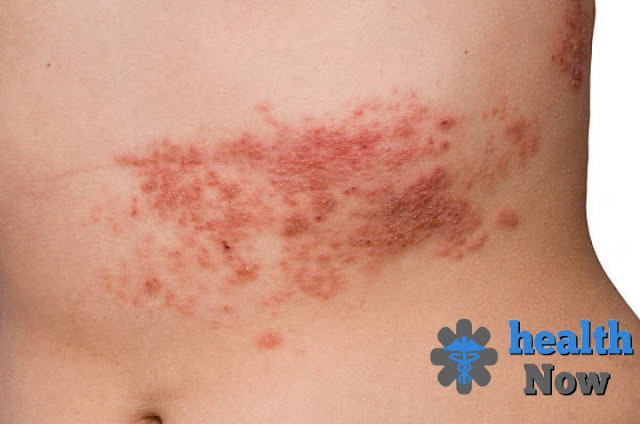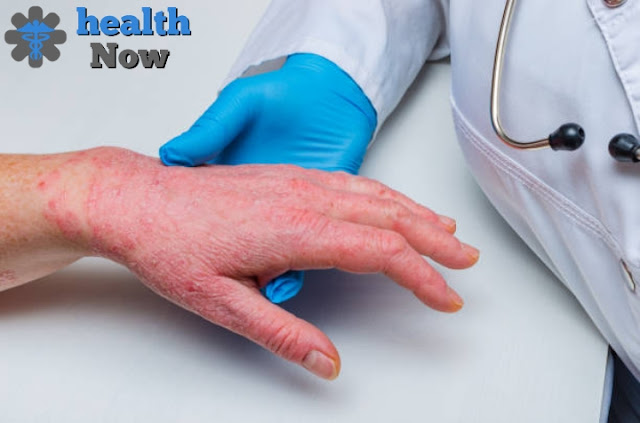What is liver disease itching?
Itching (pruritus) is a side effect of persistent liver infection, but not everyone with liver disease creates it.
You can have limited itching, for example, at the bottom of your arm, or it may be a blanket disgrace. In one way or another, conversion, which often overcomes, can push itchiness.
You don't often have to worry. Whatever it is, a continuous itching can slow down comfort and lead to a wide range of different issues. At the point where this happens, it turns into a real welfare concern.
In this article, we will investigate the causes of liver disease itching, why you should see your PCP, and how to track help.
Causes of liver disease itching.
Liver disease itching is uncommon in liquor-related liver diseases and non-alcoholic fatty liver diseases. It is usually associated with:
- Basic bile liver cirrhosis (PBC).
- Basic scleritis bile (PSC).
- Bile fibrillation during pregnancy.
Some exploratory and clinical examinations have been carried out, but researchers do not currently appear to distinguish a solitary material responsible for liver disease itching. It can be caused by a combination of variables.
Here is part of the potential outcomes of scientists:
- Yellow salts. Assuming you have a liver infection, you can have higher levels of bile salt gathered under the skin, which can cause itching. Not everyone with elevated degrees of bile salt is disturbed, and some individuals feel angry regardless of the normal level of bile salt.
- receivers. Some itchy individuals raised future levels. However, allergic drugs are not usually convincing in their treatment.
- Serotonin. Serotonin may adjust tingling vision. This may be why serotonin absorption inhibitors (SSRIs) can help supervise itchiness in some individuals.
- Female sex chemicals. Tingling deteriorates from time to time during pregnancy or assuming you are undergoing chemical replacement therapy.
- Phosphatase is soluble in serum (ALP). Individuals with itchy liver disease may have raised ALP.
- Lysophosphatidic corrosive (LPA) and autotaxin (a catalyst framing LPA). LPA influences numerous cell capacities. Individuals with liver disease itching sickness might have more significant levels of LPA.
The most effective way to treat itching that relates to itching liver diseases.
It is assumed that itching caused by itching the liver disease will not develop itself, yet tends to deal with it.
Since you are not fully aware of the reasons, it is difficult to determine which treatment can suit you. It may require a combination of treatments along with a specific scale of experiments.
Try not to scratch.
It is necessary to try not to scratch the itching place because it can exacerbate the situation. Keep your nails short so that assuming you scratch, you are less inclined to tear the skin and make your way to contamination.
Assuming you end up being excessively scratched, try to keep away from tweeting by keeping your skin covered. In case of scratching too much during the evening often, wear gloves to sleep.
Here are some different things you can do to prevent skin disorders and direct tingling:
- Use warm or cold water instead of high heat water for bathing and showering.
- Do whatever it takes not to invest excess energy in warm conditions or the sun.
- Choose nice detergents that do not contain additional odors.
- Use thin, odor-free creams to fight drought.
- Place a cool and wet material on the annoying area until the desire for scratching abates.
- Stay away from substances or substances that exacerbate your skin.
- Wear gloves with brutal stuff.
- Wear loose and porous clothing.
- Use moisturizer during dry cold weather months.
Apply anti-itch topicals.
In case of gentle and confined itching, you can try water cream with 1% menthol. Other over-the-counter topics (OTC), such as corticosteroids and calcineurin inhibitors, may similarly develop tingling.
Follow the name addresses and make sure you tell your primary care doctor that you are using them.
Take solution oral prescriptions.
Your doctor might suggest oral medicines, for example:
- Cholestyramine (Prevalite). This oral prescription aids eliminate bile salts from the course.
- Rifampicin (Rifadin). This drug represses bile acids. Taken every day, it requires customary observing because of the potential for genuine incidental effects like hepatitis or renal hindrance.
- Naltrexone (Vivitrol). Taken every day, this prescription blocks the impacts of narcotics. It requires standard checking.
- Sertraline (Zoloft). This SSRI is likewise taken every day. It's generally recommended as a stimulant. Different antidepressants, like fluoxetine (Prozac), may likewise be utilized to treat persistent tingles.
Attempt allergy medicines (for rest).
Allergy medicines haven't been shownTrusted Sources are compelling in treating tingles brought about by liver disease itching, however, they might assist you with nodding off despite the tingle.
Think about light treatment.
One more choice is light treatment, otherwise called phototherapy. This treatment opens the skin to explicit kinds of light to advance recuperating. It can take a few meetings to begin working.
Examine a liver transfer with your primary care physician.
At the point when treatment doesn't work and personal satisfaction is seriously impacted, your primary care physician might need to examine the chance of a liver transfer. This might be a choice regardless of whether your liver is as yet working.
Does itching show anything about the movement of liver infection or anticipation?
Liver disappointment now joins and then itching. Anyway, you can promote itching problem directly from bats, before you even realize that you have liver disease.
It can promote pruritis at any time in liver disease, and the right is said. This side effect alone does not express anything about the seriousness of liver disease, movement or guesswork.
That doesn't mean it's just an important problem. While the tingling continues, it can add to:
- Sleep disorder.
- fatigue.
- discomfort.
- exhausted personal satisfaction.
Side effects of itching with liver infection.
Itching associated with liver disease will generally be more unfortunate late at night and during the evening. Some individuals may feel itchy in one area, such as appendicitis, bottoms or centres of their hands, while others suffer from an overall tingling.
Itching associated with liver disease generally does not include rashes or skin injuries. Despite this, you can promote apparent aggravation, redness and pollution due to unreasonable scratching.
- Open to warmth.
- Stress.
- Pregnancy Period.
- Chemical Replacement Treatment.
What different things could cause irritated skin?
Since there are such countless things that cause irritated skin, conceivable tingling isn't connected with your liver infection.
A serious instance of dry skin (xerosis cutis) can positively prompt problematic tingling. Tingling without rash can likewise be a result of specific prescriptions, including narcotics, statins, and circulatory strain drugs.
Skin conditions, for example, dermatitis and psoriasis cause tingling joined by kindled, red, or flaky skin.
Skin tingling can be because of an unfavorably susceptible response to such things as:
- poison ivy.
- beauty care products.
- cleanser.
- family cleaning items.
- synthetic substances.
- textures like fleece or mohair.
As well as tingling, a hypersensitive response is probably going to include skin redness, rash, or hives.
- tension.
- gloom.
- Lack of iron paleness.
- kidney disappointment.
- leukemia.
- lymphoma.
- numerous myeloma.
- numerous sclerosis (MS).
- over the top impulsive issue (OCD).
- squeezed nerve.
- shingles (herpes zoster).
- thyroid issues.
- bacterial, viral, contagious, or parasitic skin disease.
- bug nibbles or strings.
- pregnancy.
- Deciding the reason for itching is preposterous all of the time.
When to see a specialist.
Assuming you suffer from liver disease, see PCP anytime you have new side effects or demolition. This involves tingling.
Although it may not make a difference, taking into account everything, you will have no blurry idea about it certainly without an accurate assessment.
It is especially necessary to tell your primary care doctor if you have difficulty drowsiness and if itching affects your personal satisfaction.



